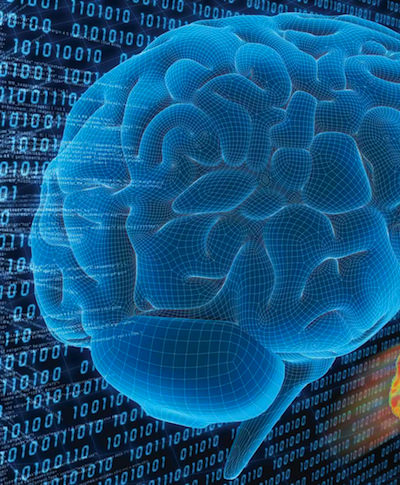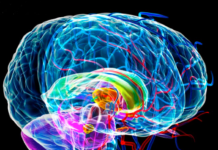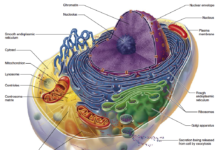By Hyla Cass, M.D.
 |
It’s happened to all of us: fuzzy thinking, daydreaming, inability to concentrate, a slow mind, and the struggle to connect names with faces or recall schedules and phone numbers. We often will turn to stimulants like sugar and coffee in a vain effort to jump-start our mind.
Declining mental function, which often starts when we reach our forties, is not inevitable. The good news is that you can get your mind in gear again and make it work better than ever.
Some simple interventions can go a long way. Mira brought her 75-year-old mother, Dora, to see me. Her memory had become so bad that Mira was afraid to leave her alone in her nearby apartment. Dora was forgetful, getting lost in the neighborhood, and appeared depressed. Her doctor wanted to prescribe antidepressants, but Mira wasn’t convinced. She knew how much help she herself had found through natural means.
Mental decline may be due to diseases of the blood vessels (vascular disease, hypertension) or to neurotoxins. Many circulatory problems can be addressed with a multi-pronged approach and a supplement program.
“Dora was forgetful, getting lost in the neighborhood,
and appeared depressed. Her doctor wanted to
prescribe antidepressants, but Mira wasn’t convinced.”
Circulatory problems will likely respond to chelation therapy – given intravenously or orally – using a chelating or “grabbing” agent to clear the calcium deposits from the arterial walls (details on chelation therapy can be found on the internet at: www.acam.org).
Here’s what you can do for prevention. First of all, it’s a “use it or lose it” situation. The more you “exercise” your brain, the better it will work. Whether you’re 20 or 60, the time to act is now. You must maintain a proper diet, exercise, reduce stress levels, get rid of toxins in the brain, and take nutrients that boost mental function.
One quick way to get a handle on memory loss is to reduce stress. Researchers at Stanford University have found that the communication system among brain cells begins to shrivel up after just two weeks of exposure to stress-induced high cortisol levels. The great news is that managing stress can reverse the effect.
Be sure you’re getting plenty of antioxidants in your diet, including foods containing large amounts of vitamins A, C, and E, selenium and zinc. These are needed to neutralize free radicals – toxic molecules formed by normal metabolism and by toxins we take into our bodies from our environment.
Our trillions of brain cells are made of 60 to 70 percent fats or lipids, and we need essential fatty acids (EFAs) to provide the appropriate raw materials. So include plenty of “brain food” in the form of fatty fish (salmon, mackerel, tuna), flaxseeds, and oils made from seeds and nuts. Avoid the bad fats: trans-fatty acids and saturated fats.
Aricept (donepezil) has been shown to slow the progression of Alzheimer’s disease, although it does not cure the disease. Side effects include loss of appetite, vomiting, muscle cramps, fatigue, and diarrhea.
[the_ad id=”13181″]
Natural Approaches
Natural treatments provide the materials needed to make brain cells and enhance neurotransmitter production and activity.
- Acetyl-l-carnitine (ALC) is fuel for the brain, helping to produce the memory neurotransmitter, acetylcholine, while acting as an antioxidant for the brain and nervous system.
- DMAE is another building block for the vital brain neurotransmitter, acetylcholine. By supporting synthesis of this important neurotransmitter, DMAE aids in supporting alertness, improves concentration, reduces anxiety, improves learning and attention span, and normalizes brain-wave patterns.
- Ginkgo Biloba Research shows that by enhancing blood flow, ginkgo not only prevents the progression of Alzheimer’s disease, but also enhances memory and mental performance in younger people as well.
- Phosphatidylcholine is a phospholipid that forms the structure of nerve cell membranes and declines with age. Phosphatidylcholine is one of the building blocks of acetylcholine, a neurotransmitter that is key to helping you feel more alert and clearheaded, and to improving memory and concentration.
- Phosphatidylserine is also the building material for neurotransmitter receptor sites. It is essential for memory and mental function. It improves mood, memory, stress resistance, learning, and concentration.
You can experiment with various combinations of these remedies, adding in one at a time and seeing how you respond. You can take them in convenient combination formulas as well.
Clinical Outcome
Back to Dora, who sat listless and withdrawn next to her daughter Mira. With Dora’s permission, I gave her an injection of B vitamins, predominately B12 and folic acid. This had an almost immediate effect on her demeanor and energy. She perked up and began to carry on a conversation with me. She also remembered that some years ago, her family doctor had given her “energy shots” of B12 every few weeks.
“Within eight weeks, Dora had regained many of her
faculties. A miracle? Yes and no. Her vitamin B12 deficiency,
common in the elderly who often absorb it poorly,
had been interfering with her neurotransmitter production.”
After giving her a prescription for some lab work, I drew up a list of supplements for her to take in addition to a multivitamin high in antioxidants: a 1000 mcg. tablet of vitamin B12 daily to take under her tongue (for better absorption), plus a combination formula of ginkgo biloba, phosphatidylcholine, choline, vinpocetine, DMAE, and huperzine called Brain Cell Support Plus, 2 capsules daily. In addition I prescribed phosphatidylserine, 100 mg. twice daily, and acetyl-l-carnitine, 500 mg. twice daily. This seemed like a lot to Mira, who was in charge of giving it to Dora, however she was willing to try it to get her mother back.
Within eight weeks, Dora had regained many of her faculties. A miracle? Yes and no. Her vitamin B12 deficiency, common in the elderly who often absorb it poorly, had been interfering with her neurotransmitter production. The ginkgo and vinpocetine helped restore brain blood flow, getting more oxygen to her brain. And the DMAE and choline restored her neurotransmitter levels.
Dora’s newfound alertness and energy allowed her to take daily walks in the park which helped even further. Fresh air, sunlight, exercise, and nature all have healing effects on the brain and body.













